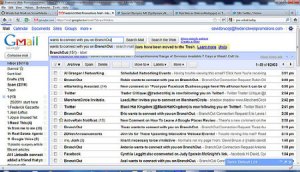CV and cover letter writing skills are probably the most talked-about skills a graduate needs to have – but that doesn’t make them less confusing. By Carolina Are
As a foreign student coming from a completely different culture, the first thing I’ve understood is that there’s no exact formula to come up with the perfect CV or cover letter.
The job market here in London is faster and more ruthless than anything I’ve seen before, so the question is: how can you stand out with a CV and cover letter sent via email?
Working here at Futureboard has given me a few guidelines. Read on to find out how the team clarified my doubts.
Tailored CV vs your personality
“Tailor your CV to the company you’re applying for,” is the obvious mantra everyone keeps repeating, but this expression sounds like a cliché: how can you tailor a CV to every job without losing your personality, those small traits that make you stand out?
According to my colleagues here at Futureboard, this only means making sure your work experience to date and (if possible) academic degree match the position you’re applying for.
You can be creative with quirky details about yourself and/or your interests in the ‘additional information’ and ‘interest’ sections. However, these still need to be professional: make sure you only write interests you’re happy to talk about!
Sum it up
Synthesis skills are essential both for CVs and cover letters. This doesn’t only mean ‘keep them short’: it also means writing a short three-sentence profile at the top of your CV, a small bit of text not too different from an effective Twitter bio to explain who you are, what you can do and where you want to go with your career.
Cover letters or cover emails?
Remember that cover letters are now turning into cover emails – and that readers’ attention span on the internet is very short. This means there’s generally no need to send both – if the company doesn’t ask you to.
Me or the company?
No one wants to read a longer version of your CV, so don’t expand too much on what is already there: share different messages and ideas on your cover letter, explaining how the skills you’ve gained make you the perfect fit for the job.
A good way to blend in your interest in and enthusiasm for the company with your skills is saying why you want to work for them instead of their rivals: it shows you’re passionate and that you take the initiative to do some competitor analysis.
Companies receive thousands of emails – and the chance that one called “John Smith Internship” will be overlooked are very high. So how do you write an attention-grabbing email title?
The secret to attention-grabbing titles joins headline-writing with some good old research. According to the Futureboard team, it’s good to research the projects the company is working on and write a related title.
A pun about the projects or a quirky and interesting way to present yourself generally works.
Do you have any CV and cover letter writing doubts? Share them with us and we will answer!
Pictures by: reed.co.uk, BBC, pre-cloudfront
